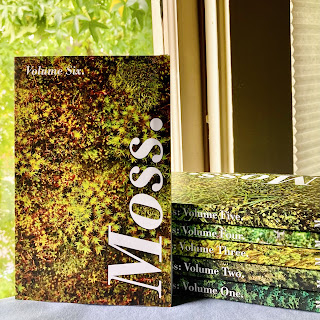 |
People Along the Sand by Rachel King
(cover) |
Last night, I finished the novel
People Along the Sand by Rachel King. It’s a quiet, calm, and deep exploration of several people who live in the 1960s in a small, coastal town in Oregon.
It’s difficult to say what the novel is about.
It’s not about The Vietnam War, though that is happening and there are those who turn away from the daily news of it, those who enlist whole-heartedly, and those who try to figure out what they’ll do if they’re drafted. Later, a childhood summer friend will be killed in the war and, as with any sudden and unexpected death, the parents of the living child are faced with how to share the bad news and watch their child grieve.
It’s not about the Beach Bill that ensures public access to the Oregon beaches, although several characters door-knock in support of it and others worry how it will affect their businesses or homes. An estranged father and adult son are tossed back together because of the issue but the rift between them is too vast to keep them together.
It’s not about the changing role of lighthouses, their automation, and the many storm-wrecked deaths that have happened and will now be prevented. But a retired lighthouse keeper’s whole life has been his knowledge and experience, and even after the death of his wife and the estrangement of his son, he still has no idea how to puzzle his personal history with his professional history. But he keeps trying.
It’s not about the swelling of women’s rights and equality or equal pay for equal work, but several women own businesses in the town and are unique in that. Another woman who has worked full-time as an accountant for her husband’s hotel as part of the marriage begins to want a decision-making role in the hotel, too, and starts to wonder why she both isn’t allowed that and isn’t paid for what is clearly beyond the role of wife and partner. She is starting to shift in her awareness of self and while others want a clear articulation of what that means or how they should act in response to that, she herself is in the midst of it and is trying to articulate and understand it herself.
It’s not about living beside the tumultuous ocean and under so many gray skies, but everyone gravitates to the ocean and everyone knows each other through the ocean—whether they grew up in the town or married into it. Each of them walk the beaches, know the hiding places of starfish, understand the precision and patience required to find agates, and are bound to each other in the shared but individual experience of coastal life.
It’s not about baking or running a bakery but there is a character who runs her own bakery and does all the baking, ordering, and serving. She thrives in each aspect and enjoys the quiet, dark mornings and the care and focus of kneading, creating. And while she lives a life of solitude, it is her steadiness that others seek out.
The novel is exactly about what great novels are about: the shifting, beautiful lives of people and how our lives press against each other in unexpected, pivotal, quiet, or hardly detectable ways. It is about the pull of grief and the changing lives of mothers and children. It’s about leaving signs that you have lived and the dust left on aspects of the lived parts of our lives. The novel understands nostalgia and reality, broken legs and confused husbands. It understands the confusion of youth and the intimacy of two people talking about music.
It’s a very good book.
You should probably read it.
📖









